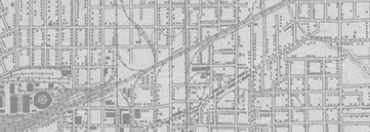


Back
"1961: Desegregation," clipping from The Dallas Morning News
Newspaper clipping titled "1961: Desegregation" from The Dallas Morning News. This article was originally published on September 1, 1961 and was reprinted in this later 1985 edition. The text of the article reads:1961: DesegregationDuring The Dallas Morning News' Centennial celebration, we are reviewing some of the editorial stands taken by The News during its 100-year span of history.From the first issue of its parent newspaper, The Galveston News, in 1842, this publication has provided Texans with news and clear statements of its own editorial opinions.In the following editorial, The News on Sept. 1, 1961, urged Dallas residents to accept federal court orders that would bring about the desegregation of public schools here.Dallas Can Do ItLaw-abiding Dallas watched with sympathy and good will as Atlanta complied with court rulings in a peaceful first day of school integration"So can we," commented Dallas Police Chief Jesse Curry, returning from observing Atlanta's well-planned handling of the entry of Negro students into desegregated schools. Chief Curry, who earlier had laid careful plans, will profit from Atlanta's experience.Sept. 6 will be the date for testing Dallas' good will and firmness of devotion to the principles of democracy.Thoughtful leaders, including many who sincerely believe that the courts are wrong, have worked ably to maintain this city's reputation for law and order. Negro leaders have preached patience to those who would speed integration. Churches, schools, informational media and almost every other segment of this city of a million have worked together in a spirit of which all Dallas can be proud.Let that spirit live on Sept. 6 and the days beyond - then Dallas will have made one of the greatest advances in its proud history.
"1961: Desegregation," clipping from The Dallas Morning News
09/01/1961
Newsprint
7 7/16 × 5 in. (18.9 × 12.7 cm)
Gene Curry Collection/The Sixth Floor Museum at Dealey Plaza
2021.020.0041
Despite being a heavily segregated city in the early 1960s, many believe that Dallas escaped some of the civil rights-related violence seen elsewhere in the South because of the actions and attitude of Dallas Police Chief Jesse Curry. In 1962, Curry and his administrative assistant, Captain Glen King, wrote a 135-page booklet for law enforcement entitled, "Race Tensions and Police." The publication was intended to prevent "the racial strains that characterize America and its communities" and was based on a special training manual used by the Dallas Police Department. In a 2021 oral history, son Gene Curry said of his late father, "One of the things that he thought was one of his best achievements...was no rioting or problems or anything like that.... [He] was proudest of...the way that Dallas desegregated the schools." Ironically, in an otherwise definitive history of Dallas entitled Big D (1994), journalist and SMU emeritus professor Darwin Payne noted that Jesse Curry had been a member of the Dallas chapter of the Ku Klux Klan in the 1920s. While this anecdote generated controversy and has since been widely repeated, it is completely incorrect. Born in 1913, Jesse Edward Curry would only have been ten years old at the time that Payne believed he was part of the local KKK. According to son Gene, Dr. Payne saw a "J.E. Curry" listed on a 1920s roster of KKK members and mistakenly assumed it was the later Dallas police chief. It was, in fact, Jesse Curry's father, a onetime Dallas police officer who experienced a conversion later in life and became a Baptist minister. Unfortunately, due to the incorrect reference in Big D, many to this day believe that Dallas Police Chief Jesse Curry was part of a racist organization when he was, in fact, a local champion for peaceful race relations and desegregation. -- Stephen Fagin, Curator

"1961: Desegregation," clipping from The Dallas Morning News
Newspaper clipping titled "1961: Desegregation" from The Dallas Morning News. This article was originally published on September 1, 1961 and was reprinted in this later 1985 edition. The text of the article reads:1961: DesegregationDuring The Dallas Morning News' Centennial celebration, we are reviewing some of the editorial stands taken by The News during its 100-year span of history.From the first issue of its parent newspaper, The Galveston News, in 1842, this publication has provided Texans with news and clear statements of its own editorial opinions.In the following editorial, The News on Sept. 1, 1961, urged Dallas residents to accept federal court orders that would bring about the desegregation of public schools here.Dallas Can Do ItLaw-abiding Dallas watched with sympathy and good will as Atlanta complied with court rulings in a peaceful first day of school integration"So can we," commented Dallas Police Chief Jesse Curry, returning from observing Atlanta's well-planned handling of the entry of Negro students into desegregated schools. Chief Curry, who earlier had laid careful plans, will profit from Atlanta's experience.Sept. 6 will be the date for testing Dallas' good will and firmness of devotion to the principles of democracy.Thoughtful leaders, including many who sincerely believe that the courts are wrong, have worked ably to maintain this city's reputation for law and order. Negro leaders have preached patience to those who would speed integration. Churches, schools, informational media and almost every other segment of this city of a million have worked together in a spirit of which all Dallas can be proud.Let that spirit live on Sept. 6 and the days beyond - then Dallas will have made one of the greatest advances in its proud history.
"1961: Desegregation," clipping from The Dallas Morning News
09/01/1961
Investigations
Newspapers
Civil rights
Desegregation
Education
Integration
Curry, Jesse E.
Dallas Police Department
The Dallas Morning News
Dallas
Newsprint
7 7/16 × 5 in. (18.9 × 12.7 cm)
Gene Curry Collection/The Sixth Floor Museum at Dealey Plaza
2021.020.0041
Despite being a heavily segregated city in the early 1960s, many believe that Dallas escaped some of the civil rights-related violence seen elsewhere in the South because of the actions and attitude of Dallas Police Chief Jesse Curry. In 1962, Curry and his administrative assistant, Captain Glen King, wrote a 135-page booklet for law enforcement entitled, "Race Tensions and Police." The publication was intended to prevent "the racial strains that characterize America and its communities" and was based on a special training manual used by the Dallas Police Department. In a 2021 oral history, son Gene Curry said of his late father, "One of the things that he thought was one of his best achievements...was no rioting or problems or anything like that.... [He] was proudest of...the way that Dallas desegregated the schools." Ironically, in an otherwise definitive history of Dallas entitled Big D (1994), journalist and SMU emeritus professor Darwin Payne noted that Jesse Curry had been a member of the Dallas chapter of the Ku Klux Klan in the 1920s. While this anecdote generated controversy and has since been widely repeated, it is completely incorrect. Born in 1913, Jesse Edward Curry would only have been ten years old at the time that Payne believed he was part of the local KKK. According to son Gene, Dr. Payne saw a "J.E. Curry" listed on a 1920s roster of KKK members and mistakenly assumed it was the later Dallas police chief. It was, in fact, Jesse Curry's father, a onetime Dallas police officer who experienced a conversion later in life and became a Baptist minister. Unfortunately, due to the incorrect reference in Big D, many to this day believe that Dallas Police Chief Jesse Curry was part of a racist organization when he was, in fact, a local champion for peaceful race relations and desegregation. -- Stephen Fagin, Curator









